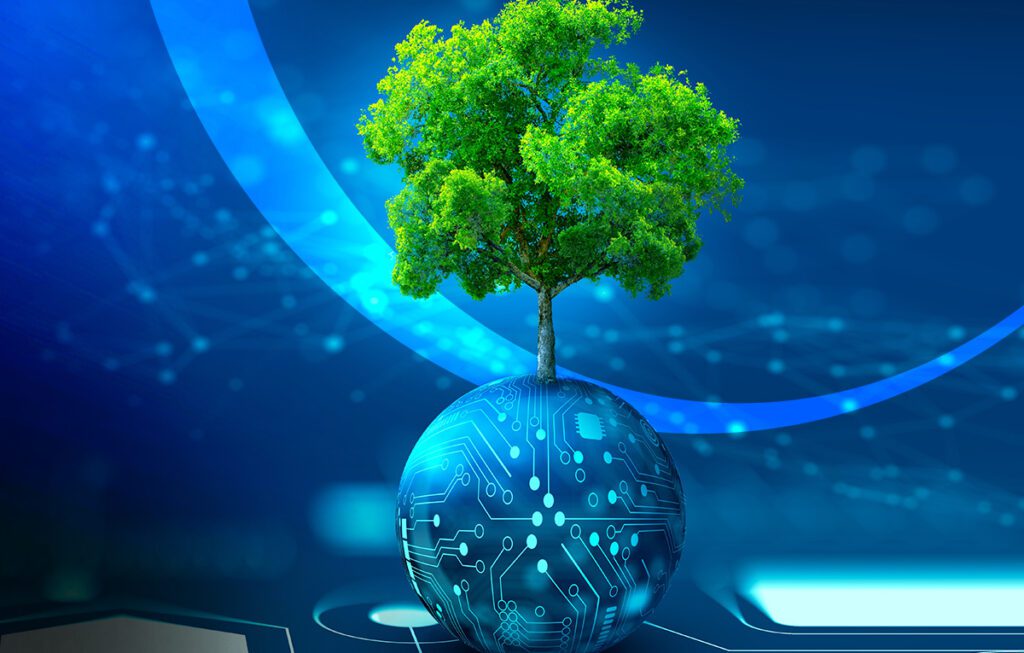Climate is the most consequential issue of our time. As I am writing this, it hit 107 degrees Fahrenheit in Silicon Valley, for the second day in a row.
The planet is warming, resulting in extreme fires, floods and drought, land-based snow masses, food shortages, melting and ocean temperatures rising.
Already we have warmed the planet about 1.1°C. And half of all emissions that have ever been produced from fossil fuels—in the entire history of humanity—have been in just the last 25 years.
According to the Paris Agreement, humanity’s shared goal is to limit warming to 1.5°C—but even with our collective effort, it is quite possible we will reach 2°C. And if we are too slow to make changes, we are on track to hit 3°C or even 4°C.
With each degree of warming comes a serious escalation of the climate consequences.

This is not a “future problem.” It is already happening. In my lifetime, I could see water disappear in the west, dying oceans, toxic air. Last year in California, the air was literally unbreathable some days. And we cannot overlook the increasing severity and frequency of wildfires.
Bangladesh is projected to lose 11% of its land, causing 18 million people to become climate refugees by 2050. As many as 50 million by 2100. Meanwhile, New York City will experience ten times the flooding it does today by 2050. A third of Florida is on track to be underwater by 2100.
This July, the UK experienced record-breaking heat, with temperatures reaching over 40°C. It caused nearly 1,000 heat-related deaths. Meanwhile, the consequences for places closer to the equator, like Africa, are even more dire. Longer, more frequent and increasingly intense heat waves and droughts, which will cause massive impacts on food production, water resources and basic livability.
By 2070—less than 50 years from now—up to 3 billion people will likely live in climate conditions deemed “unsuitable for human life to flourish.” 3 billion people. Let that sink in for a moment.
Limiting climate change is the difference between a planet that’s livable for humanity—and one that’s not. There is no second planet, there is no PLAN B.
We are living in a time of climate awakening. There is no longer any question about whether climate change is happening, or whether humans are causing it. Governments and businesses alike are stepping up to address this shared existential crisis.
Just look at how fast we invented, manufactured, produced and distributed the COVID-19 vaccine. This is the energy that we are now bringing to the climate crisis. This is the energy that drives the climate innovators—the trailblazers and leaders in the most important fight of our generation.
At OpenText, we define climate innovators as those who create new or enhanced climate solutions through technology, policy and investment models to supercharge our progress.
How can businesses be climate innovators?
Becoming a climate innovator takes planning, process and perseverance. But the benefits are exponential.
Step 1: Make a Multi-year Pledge
It starts with taking a hard look at your own business, setting targets and making a public statement about your goals. In the past few years—the rise of the Global Climate Awakening—we have seen a rapid increase in the number of companies taking this crucial step.

At OpenText, we recently announced The OpenText Zero-In Initiative, which includes our zero-footprint pledge.

Step 2: Take it from Pledge to Process
A pledge is the start, but we need action.
For most businesses, this is the biggest challenge. It is not easy to turn the sustainability pledge into real, actionable, embedded processes—processes that are ingrained so deeply within the organization’s DNA that they become more than just a “program.”
Taking it from pledge to process calls for revolutionary ways of doing business, from business models to the employee experience, to sourcing and suppliers, to payment and customer communications.
The planet demands it. What’s more, consumers are demanding it too. In recent research conducted by OpenText, 88% of global consumers indicated that they plan to prioritize buying from companies with ethical sourcing strategies in place. Environmental impact is at the forefront.
Sustainable business equals good business.
Step 3: Amplify Your Impact
To truly be a climate innovator, a business must go beyond its own borders. Through the force of innovation, you must mobilize and enable others—customers, partners, employees, suppliers, society at large.
It might be a new business model that helps consumers drastically reduce their footprint. Or technology that takes carbon out of the atmosphere and spurs others to create ever-more effective iterations. Or a reinvention of the production process for the circular economy, eliminating waste and compelling suppliers to do the same.
The possibilities are vast. It is up to climate innovators to discern how they can have the greatest impact, given their unique competencies.
OpenText will bring software to the fight?
OpenText is committed to a sustainable and inclusive future. We are harnessing the power of technology for the greater good. We are embracing cloud, reducing our own footprint and helping customers do the same.
Today, I will focus specifically on how we are using our technology to eradicate paper usage; in my upcoming digital position paper (stay tuned!), I will expand upon this with additional ways that OpenText technology is the foundation for sustainable business.
When we cut paper out of the process, we also cut waste, energy usage and emissions. We save water. We save forests.
Business Network Cloud reduces paper usage in supply chain management. It digitizes end-to-end order-to-cash processes. It delivers digital spaces and content repositories that allow dispersed teams to work together without printing documents or travelling to collaborate.
With our Business Network Cloud alone, OpenText digitizes 33 billion transactions per year.

Content Cloud reduces paper usage in core business processes, streamlining and digitizing processes associated with external file collaboration, eSignature and employee file management.
OpenText helps over 8,000 Content Cloud customers digitize, capture and store documents, saving approximately 25.2 million trees per year.
Experience Cloud reduces paper usage by digitizing customer communications and billing.
Through Experience Cloud, OpenText helps customers digitize 3.3 billon fax exchanges per year, which equates to an estimated 4 million trees.
We are partnering with our customers to make a huge impact with our technology. And we are just getting started.
We have a larger role to play
This is the story of the 21st century. This is the fight of our generation.
And we have a bold goal. We believe information management (IM) can save 1% of the world’s trees over 10 years, through Digital Transformation.
IM is transformative. If there are 3 trillion trees in the world, and each tree produces 10,000 pages of paper, our ambition is for IM to remove enough printed content through digitization to save 1% of the world’s trees over the next 10 years (that’s 30 billion trees).
We see a future that is inclusive and sustainable. One where the digital world works to protect the physical one and organizations use their data for good.
We all need to be climate innovators. We need to understand climate change and unleash exponential innovation that enables our industries and customers to not only thrive, but shape the future in positive ways.
OpenText is playing it forward. The future is not something to predict, it is something to build.




